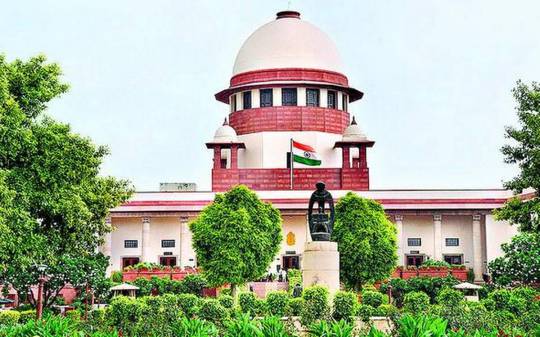#CONTRIBUTIONOFHOUSEWIFE
Text
‘The Valuable Role of Homemakers : Recognizing the Unseen:’

Arvind Kumar Pandey & others v. Girish Pandey & Another
Civil Appeal 2524/2024
Subject: Motor Accident Claim, Motor Vehicle Act 1988, Section166 of MV Act, Motor Accident Claim Tribunal (MACT), Homemakers Matter, Family First, Legal Insights
Before Supreme Court of India
Heard by the Bench of Hon’ble Mr. Justice Surya Kant J & Hon’ble Mr. Justice K V Viswanathan J
Order: Civil Appeal was allowed on
Background:
Appellant No.1 is the husband, and appellant Nos.2 and 3 are the daughter and son of the deceased Smt. Sushma Pandey.
She was around 50 years old on 26.06.2006 when she was travelling with the respondents in their car.
The vehicle lost control, skidded off and fell into a ditch at about 3.45 p.m., causing the death of Smt. Sushma Pandey.
Facts:
This is the case where Appellants (husband and his two children Son & Daughter) filed a Claim Petition before the Motor Accident Claims Tribunal seeking compensation of Rs.16,85,000/-.
The Tribunal dismissed the Claim petition stating that the vehicle in question was not insured and, therefore, the claim did not lie.
Aggrieved by the dismissal of Claim, the Appellants approached the High Court by way of an appeal.
The High Court allowed the appeal and remanded the matter to the Tribunal.
The Tribunal awarded a sum of Rs.2,50,000/- only to the appellants as compensation.
The Appellants went in appeal, but the High Court dismissed the same on 06.04.2017.
Aggrieved, Appellants filed Civil Appeal before Supreme Court.
Observation of the Apex Court
A Factual Errors
Order passed by the High Court is full of factual as well as legal errors.
The High Court overlooked the fact that the deceased was about 50 years old and not 55 years old.
Similarly, the High Court has committed a patent error in observing that the appellants are not dependent on the deceased (Wife & Mother).
Appellant Nos.2(son) and 3(daughter) were students at the relevant time, and were surely dependent on the parents including their deceased mother.
The High Court again misread the facts while observing that the deceased was travelling in the bus, while actually she was traveling in the car.
B Legal Error
Assuming that the deceased was not employed, it cannot be disputed that she was a homemaker.
Her direct and indirect monthly income, in no circumstances, could be less than the wages admissible to a daily wager in the State of Uttarakhand under the Minimum Wages Act.
C Contribution of a House Wife/Homemaker are invaluable
The role of a homemaker is as important as that of a family member whose income is tangible as a source of livelihood for the family.
The activities performed by a home-maker, if counted one by one, there will hardly be any doubt that the contribution of a home-maker is of a high order and invaluable.
In fact, it is difficult to assess such a contribution in monetary terms.
D Calculation of Compensation
It appears to us that the monthly income of the deceased, at the relevant time, could not be less than Rs.4,000/ p.m. or so.
However, instead of calculating the compensation under different heads, and also keeping in mind the fact that the appellants and the respondents are closely related, and the delinquent vehicle was not insured, we deem it appropriate to allow this appeal in part to the extent that the appellants are granted a lump sum compensation of Rs.6,00,000/- (Rupees six lakhs).
Since the respondents have already paid the amount of Rs.2,50,000/- to the appellants, the balance amount of Rs.3,50,000/- shall be paid by them within six weeks, failing which they shall be liable to pay interest as awarded by the Tribunal.
Seema Bhatnagar
#HOMEMAKER#LEGALINSIGHT#MOTORACCIDENTCLAIM#MOTORACCIDENTCLAIMTRIBUNAL#CONTRIBUTIONOFHOUSEWIFE#INVALUABLE
1 note
·
View note